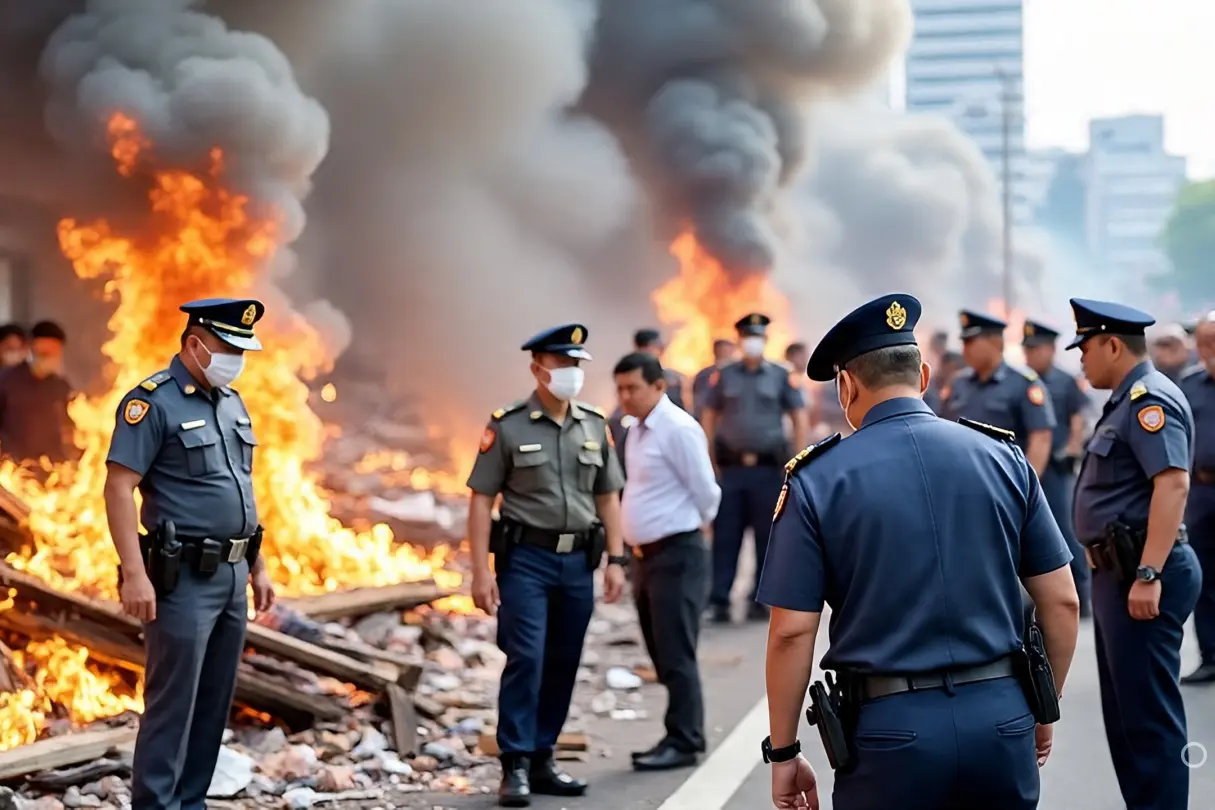🏗️ The founding of Petronas and its economic significance
Petronas—short for Petroliam Nasional Berhad—was established in 1974 under the Petroleum Development Act, giving it full ownership and regulatory control over all oil and gas resources in Malaysia. As a state-owned enterprise, Petronas isn’t just an energy company; it’s a critical pillar of national development, contributing up to 30% of federal revenue during peak years.
- 🏗️ The founding of Petronas and its economic significance
- 🤫 The conspiracy: foreign powers and hidden energy deals
- 📊 What the financial data and documents reveal
- 💼 Political elites and questionable beneficiaries
- 🧭 Resource nationalism vs. strategic diplomacy
- 🕵️ Leaks, whistleblowers, and unofficial narratives
- ⚖️ What experts and institutions say
- 🧬 The deeper issue: public trust and energy sovereignty
- 🌏 Malaysia’s crossroad: transparency or mistrust?
From funding national infrastructure to subsidizing fuel and supporting education initiatives, Petronas plays an outsized role in the Malaysian economy. It’s widely regarded as a symbol of national pride and self-sufficiency.
Yet, this very centrality raises one crucial question: who really controls the wealth beneath Malaysian soil?
🤫 The conspiracy: foreign powers and hidden energy deals
The theory at the heart of this investigation claims that Malaysia’s petroleum and gas reserves—while publicly managed by Petronas—are covertly being sold or leased to foreign powers and multinational corporations. According to proponents, these transactions lack transparency, proper oversight, and long-term benefit to the Malaysian people.
🚩 Key accusations include:
- Secretive joint ventures with foreign oil giants where profits aren’t fully disclosed
- Long-term exploration contracts that favor foreign companies over national interests
- Offshore fields allegedly licensed under shell companies tied to political elites
- Leaked agreements suggesting foreign military interests linked to deep-sea energy blocks
Critics argue that while Petronas maintains a clean international image, certain subsidiaries or partnerships may function as legal smokescreens for asset transfer or hidden ownership structures.
📊 What the financial data and documents reveal
Although Petronas publishes annual reports and is audited, those documents primarily offer consolidated views. Detailed breakdowns of revenue sharing, licensing agreements, and real-time market transactions are often absent or redacted.
Some notable findings:
- 🧾 In 2022, Petronas reported RM 129.4 billion in revenue but offered limited project-level financial transparency.
- 🛢️ Independent watchdogs like Global Witness and Natural Resource Governance Institute have flagged concerns about contract opacity and lack of parliamentary scrutiny.
- 💼 Former insiders claim that many exploration blocks are licensed through international holding companies registered in tax havens.
| Year | Reported Revenue (RM Billion) | Transparency Index (Out of 100) |
|---|---|---|
| 2020 | 178.7 | 59 |
| 2021 | 144.5 | 62 |
| 2022 | 129.4 | 60 |
The consistency of declining transparency amid fluctuating revenues has added fuel to conspiracy discussions.
💼 Political elites and questionable beneficiaries
One element that intensifies suspicion is the overlap between political power and corporate interest. Several joint ventures between Petronas and foreign oil firms have been linked—through leaked documents and investigative journalism—to politically exposed persons (PEPs).
🧠 Examples include:
- Rumors of offshore accounts benefiting middlemen linked to ruling parties
- Ex-ministers appearing on corporate boards of energy consulting firms
- Licensing tenders allegedly awarded without competitive bidding during caretaker governments
While none of these claims have been definitively proven in court, the absence of transparent parliamentary review keeps public suspicion alive.
🧭 Resource nationalism vs. strategic diplomacy
Defenders of Petronas and the government argue that international partnerships are necessary to access technology, capital, and markets. Malaysia, they say, must remain globally competitive.
🌐 Strategic partnerships—especially in deepwater drilling—often require collaborations with global firms like ExxonMobil, Shell, or China’s CNOOC. These alliances bring expertise and mitigate risk.
However, critics respond that such dependence undermines energy sovereignty. They argue Malaysia should prioritize:
- Transparent contracts reviewed by Parliament
- Public disclosure of profit-sharing formulas
- Banning shell companies from owning strategic energy assets
- Empowering local talent and firms to reduce foreign reliance
🕵️ Leaks, whistleblowers, and unofficial narratives
Some of the most provocative fuel for the conspiracy comes from leaked contracts and whistleblower testimonies.
💣 A 2019 leaked memo allegedly showed that certain deep-sea blocks were offered to a consortium with close ties to foreign defense contractors—raising alarm over strategic military encroachment disguised as energy collaboration.
📢 In 2021, a former Petronas consultant claimed that asset valuations were being artificially deflated before sale to joint ventures, allowing private entities to profit from undervalued national resources.
These claims have never led to criminal charges, but they persist in public discourse due to a lack of counter-evidence.
⚖️ What experts and institutions say
Legal and energy experts remain divided. While many reject the more extreme claims, they acknowledge structural weaknesses in governance.
💬 Professor Zaharuddin Rahman, an energy economist, noted that “Petronas operates in a gray zone between full public accountability and corporate autonomy.”
SUHAKAM and the Auditor-General’s office have previously recommended more robust oversight, but such reforms often stall due to political pushback.
Government defenders argue that Petronas remains one of the most professionally run state-owned oil companies in the world. They point to its global rankings, credit ratings, and continued profitability.
🧬 The deeper issue: public trust and energy sovereignty
Whether or not the theory holds, it reflects a broader anxiety among Malaysians: that national wealth is slipping beyond the public’s grasp.
🎯 Key factors sustaining the theory:
- Lack of accessible public data on resource contracts
- History of corruption scandals involving political-business networks
- Growing inequality despite national resource wealth
- Skepticism of media, Parliament, and regulatory bodies
This climate creates fertile ground for speculation—and in the absence of firm evidence or transparency, conspiracy thrives.
🌏 Malaysia’s crossroad: transparency or mistrust?
The way forward requires more than dismissing conspiracy theories. It demands systemic transparency reforms that rebuild public confidence in how national assets are managed.
Malaysia’s energy sovereignty should not be reduced to symbolic ownership. It must include:
- 📣 Open legislative review of all major energy contracts
- 📊 Independent audits with publicly available results
- 🛡️ Conflict-of-interest policies for political actors involved in the energy sector
- 📚 Public education campaigns on how national revenue is derived and distributed
Only then can Malaysia move from speculation to stewardship—where the nation’s richest resources serve its people, not the powerful few.




